Over the past two years, Gor and Martha’s family has faced three major moves: forced displacement from Artsakh, emigration to France, and a voluntary return to Armenia. Both were established lawyers in Artsakh, but after being displaced, they struggled to find stable employment in Armenia. Low wages, age discrimination, and the lack of citizenship made it nearly impossible to rebuild their lives. Faced with physical, legal, and psychological hardships - and influenced by stories of a better life in Europe - they decided to leave for France, hoping to receive asylum and find stability.
The collapse of the migrant “beautiful life” myth
“The harsh realities of life in Artsakh – the long-term blockade, the war, the forced displacement, and the difficult aftermath – pushed us to emigrate. Before that, of course, we tried to integrate in Armenia, because this is our homeland too. We volunteered and searched for work at the same time. My wife and I are both lawyers, but the salaries offered were extremely low. After moving, we rented a house and received some support from the state, but it wasn’t enough – we couldn’t even cover the rent. Time was running out, and we had to provide for our family. We considered various job offers, but most were rejected. The main reasons were our age – I’m 40, my wife is 43 – and the fact that we didn’t yet have citizenship. Legally, our status was unclear, and it wasn’t certain whether we would be granted refugee status or citizenship,” Gor said.
 Gor
Gor Photo: Mediamax
The desire to escape a harsh reality led Gor and Martha to believe that, given their circumstances, they would be able to settle easily in France and receive support from the state.
“We decided to go to France as tourists and “surrender.” We used the last of our savings – money we had set aside for an emergency – and sold my car to make the trip. It was me, my wife, and our minor child. The tourist visa allowed us to stay legally for 30 days, but within two days of arriving, we turned ourselves in to request asylum. We were placed in a migrant camp, but the much-talked-about “beautiful, carefree” life of migrants never materialized. The first doubts about this idealized image emerged in the camp itself. Every morning at 9 a.m., everyone had to leave the dormitory and could only return at 6 p.m. – regardless of the weather. Rain, snow – it didn’t matter. That was the rule. During those hours, we wandered the city. There were a few social centers where we could eat, but they closed by 3 p.m., leaving us with nowhere to go between 3 and 6,” Gor recalled.
“Waiting with open arms” France and the volunteerism
Gor’s wife, Martha, shared that four days after their arrival, the migration authorities placed them in slightly better housing conditions due to the presence of their little child. About a month later, they were moved into social housing.
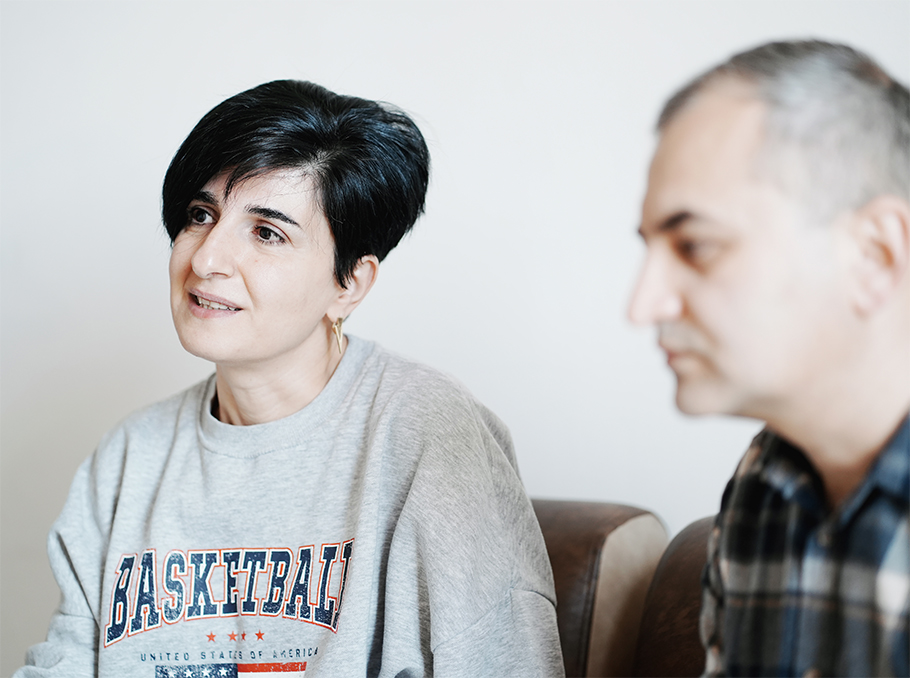 Martha
Martha Photo: Mediamax
“We received 400 euros a month for our family of three. For France, that’s an extremely small amount, it wasn’t even enough to cover basic food expenses. There was also a place where we could get food, but most of it was either not fresh or expired the same day. Not knowing the language was another serious obstacle. At first, we used translation apps to communicate with social workers, but many wouldn’t even look us in the face,” she said.
Gor Z. added that his time as a migrant shattered several long-held beliefs. “First that migrants are ‘welcomed with open arms’ in France, and then that the healthcare system is accessible to migrants. Neither turned out to be true,” Gor said.
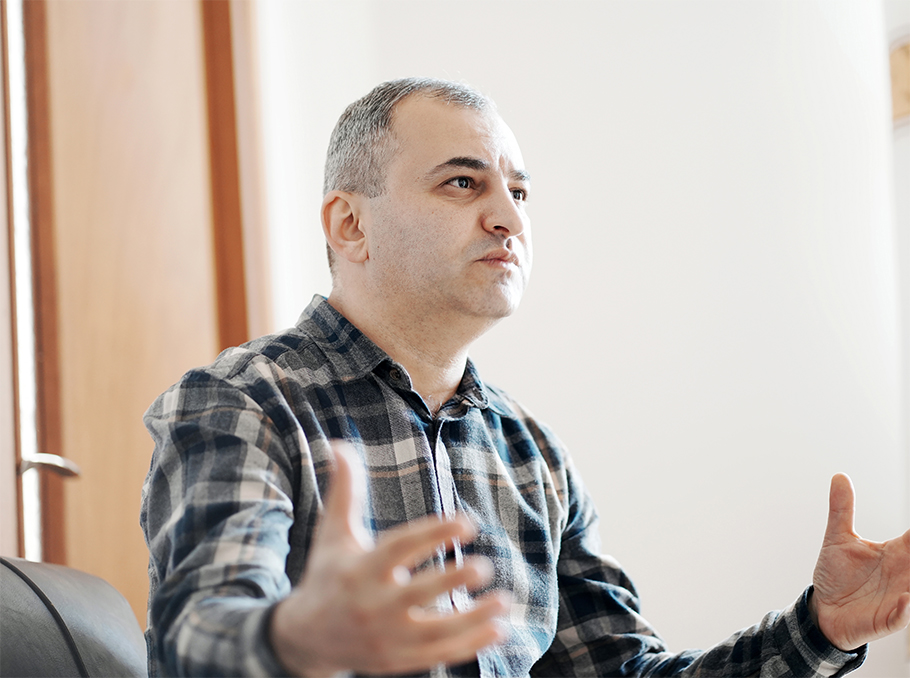 Gor
Gor Photo: Mediamax
“When we left Armenia, we believed we would be able to find work, because many people claimed that it was possible to work illegally while waiting for status, but that wasn’t the case either. To apply to an employment agency, you need to be fluent in French. Migrants are encouraged to volunteer, with the hope that it might positively influence their asylum application. I was volunteering. No matter how much I tried to smile and act cheerful while interacting with people, there were moments I just couldn’t separate myself from our reality. I would suddenly recall our home in Artsakh, my relatives, my friends. In those moments, I was reminded to keep a ‘smile on duty’ in my pocket. They made it clear that they didn’t care who I was, where I came from, or what I had been through – I just had to smile. The institution of volunteerism was another myth. There are people who speak perfect French, haven’t done anything illegal, volunteered for years, even received encouragement, but have never received a status,” he said.
The legal grounds for the rejection of Artsakh citizens in the EU
Migration expert Tatevik Bezhanyan explained that there is a widespread misconception among those displaced from Artsakh: the belief that, since they have already been recognized as refugees in Armenia, they can move on to EU countries, seek asylum again, and secure refugee status – hoping to build a better future under more favorable conditions.
“This belief is a myth. According to asylum law, if people – such as those displaced from Artsakh –have been forcibly uprooted from their place of origin and entered the first safe country that offers them protection, they are expected to remain there. In this case, Armenia has already granted temporary protection and refugee status, assuming legal responsibility for their well-being. Based on this, EU countries reject their asylum applications and return them to Armenia. I urge them not to spend senseless large sums of money on traveling to EU countries. Unfortunately, they will not be granted status there and will be returned to Armenia,” the expert noted.
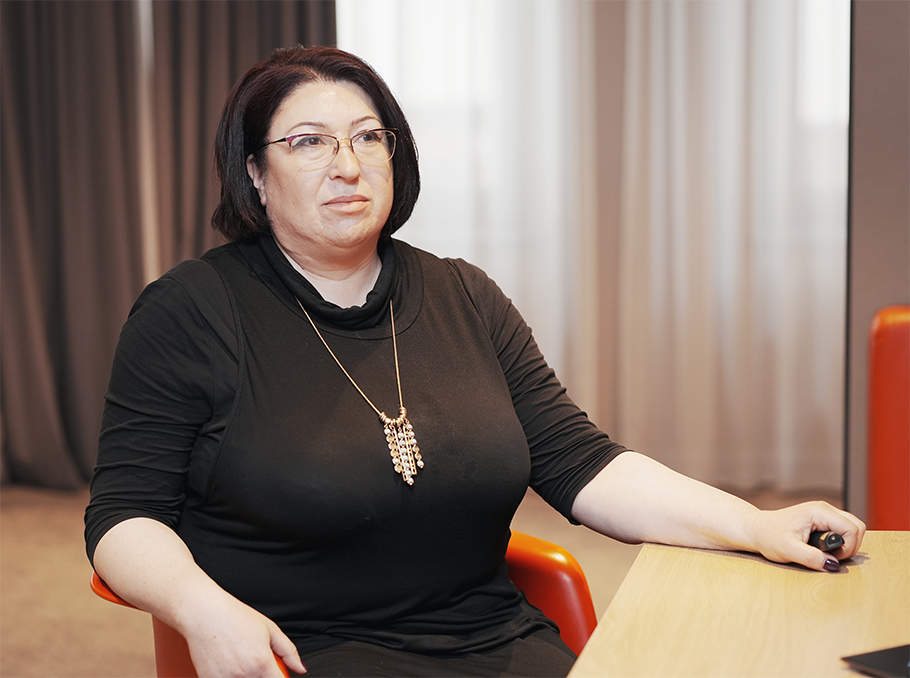 Tatevik Bezhanyan
Tatevik BezhanyanPhoto: Mediamax
Tatevik Bezhanyan also highlighted the increasing difficulty Artsakh residents face in obtaining visas to EU countries. According to her, embassies and consulates are well aware that individuals holding passports with the code 070 have refugee status.
“Initially, people with 070 passports were outright denied even tourist visas. Later the EU countries seemed to have reached a consensus, but now they are not issuing visas under the same terms as, for example, for citizens of the Republic of Armenia. Until 2023, there was no separate passport for residents of Artsakh, and they were subject to the same simplified procedures as Armenian citizens. That is no longer the case. There is now a clear distinction: although the passport looks similar to that of a Republic of Armenia citizen, it does not confer RA citizenship – it designates the holder as having refugee status. EU embassies are increasingly cautious, fearing that such applicants may overstay, apply for asylum, and become socially dependent on the state and as a result, they simply began rejecting visa applications. In the cases where individuals did receive visas and traveled, their asylum or refugee applications were subsequently denied, and they were either deported or returned to Armenia voluntarily,” said Tatevik Bezhanyan.
“Stop”: The decision to return from France to Armenia
After spending a year and a month in France without receiving either a positive or negative decision on their asylum application, Gor and Martha’s family chose to voluntarily return to Armenia in January of this year.
“While in France, we realized that the migrant processing system was moving extremely slowly. Even if we eventually received a positive decision, it wouldn’t guarantee permanent residency. Asylum could be granted for four years, but after that, a renewal request could be denied. That uncertainty made us decide to apply for voluntary return through the migration authorities. There is a procedure known as the “stop” process: you apply to the migration office to withdraw your asylum application, which they formally reject, and then they begin processing your return. Since our legal stay in France had already expired, we couldn’t just leave – we had to obtain a departure document,” said Martha.
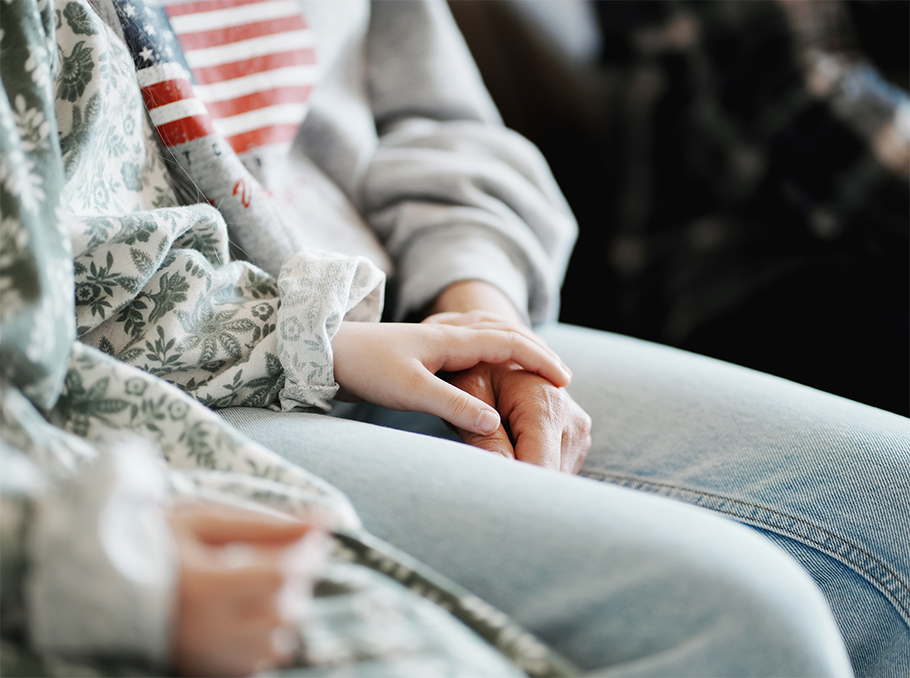
Photo: Mediamax
The return process took over two months due to complications with their child’s expired passport.
“The passport expired while we were in France. We had submitted a request to the migration authorities, but the process kept getting delayed. Eventually, we turned to the Armenian Embassy in Paris and the Armenian Consulate in Marseille. The consul in Marseille responded and helped us get a new passport for our child. Once the ‘stop’ procedure is initiated, all financial assistance from the French state is halted. There are evacuation camps for nationals of visa-free countries, but not for Armenians, so we stayed in the apartment provided to us until we returned, then we moved to Paris, they accompanied us and 5 other families so that we could return without problems. Voluntary returnees receive some assistance from the French state, including return tickets and financial support - benefits we used,” said Martha.
A new beginning
The family returned to Armenia through the reintegration program of the French Immigration and Integration Office. As they did not own an apartment in Armenia, they were informed in France that they might be eligible for rental assistance for several months upon return, as well as support in acquiring new professional skills. However, when they approached the French Embassy in Armenia with a housing request, it was denied. Instead, they were advised to submit a business plan.
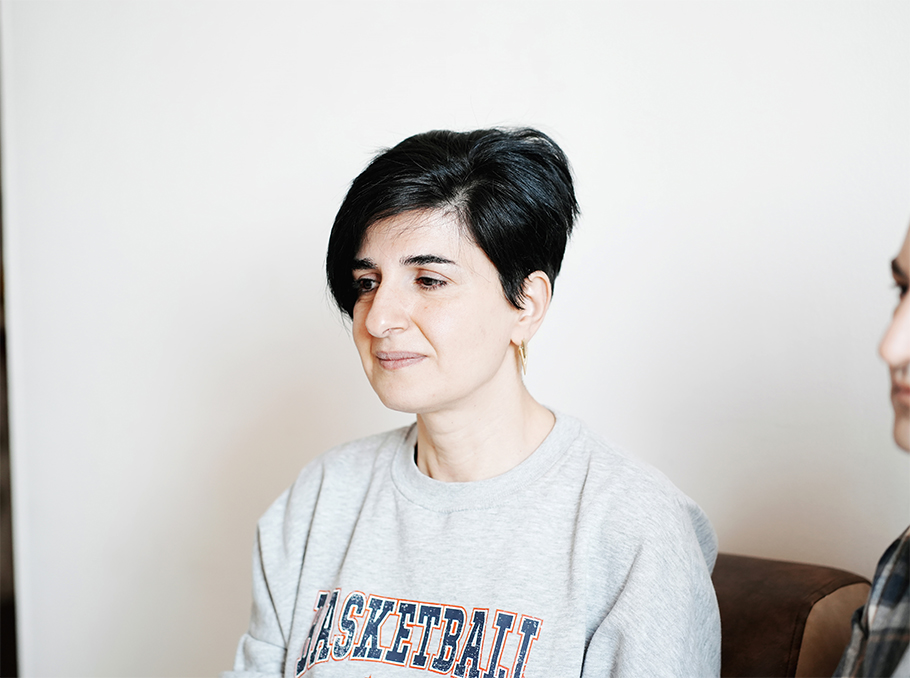 Martha
Martha Photo: Mediamax
“I headed the legal department of a state institution in Artsakh. We also ran an online store, selling handmade items and toys, and on weekends I did electro epilation at a beauty salon. I had hoped to get the proper equipment to resume that work, but they said such support wasn’t possible with a legal background – medical education was required. Through the People in Need NGO’s reintegration program, both Gor and Martha were given the opportunity to take vocational courses. Gor chose culinary training, and Martha began training as a pastry chef. We arrived back in January. Gor has already completed a one-month basic course and has one more short course to finish. I’m currently attending pastry classes,” said Martha.
The couple noted that if not for the forced displacement, they never would have considered migration or leaving the country illegally.
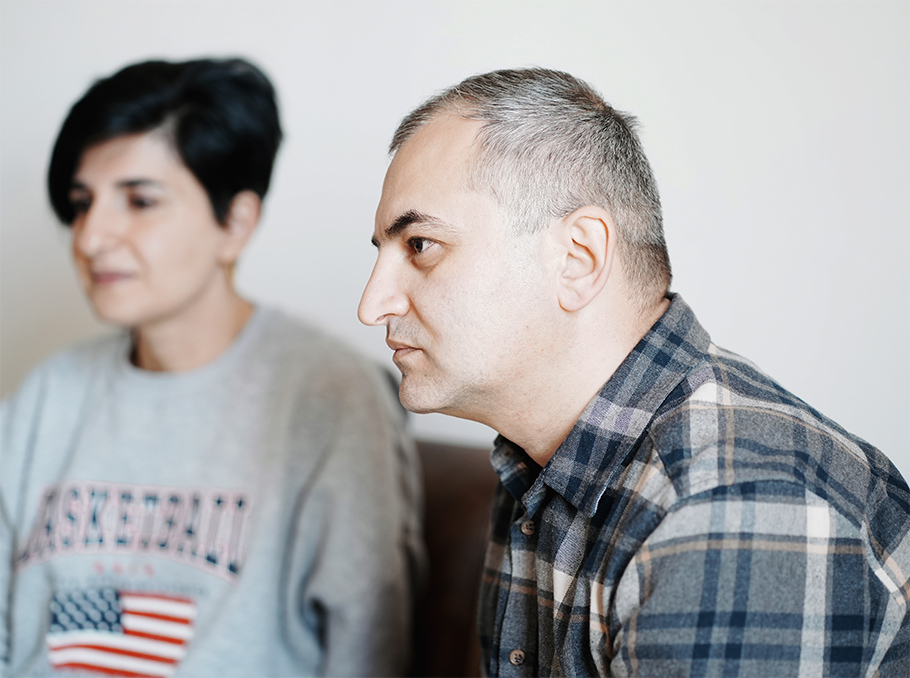
Photo: Mediamax
“We worked in Artsakh, were satisfied with our lives, and traveled with the money we saved. The forced displacement completely changed our lives. The decision to go to France further complicated our already difficult situation. We lost the money that should have been the basis for starting a life from scratch here. If those who have migrated illegally in European countries shared the reality of their journeys, many others would think twice before taking the same path. Now we are trying to rebuild everything from scratch. It is not easy here either, but after Artsakh, at least in Armenia, we feel at home,” said Gor.
This article was produced within “Reinforcement of the Migration Management System in the Republic of Armenia” project implemented by People in Need. The project is co-funded by the European Union through the Migration Partnership Facility (MPF) implemented by the International Centre for Migration Policy Development (ICMPD).
Ani Khchoyan
Photos by Agape Grigoryan









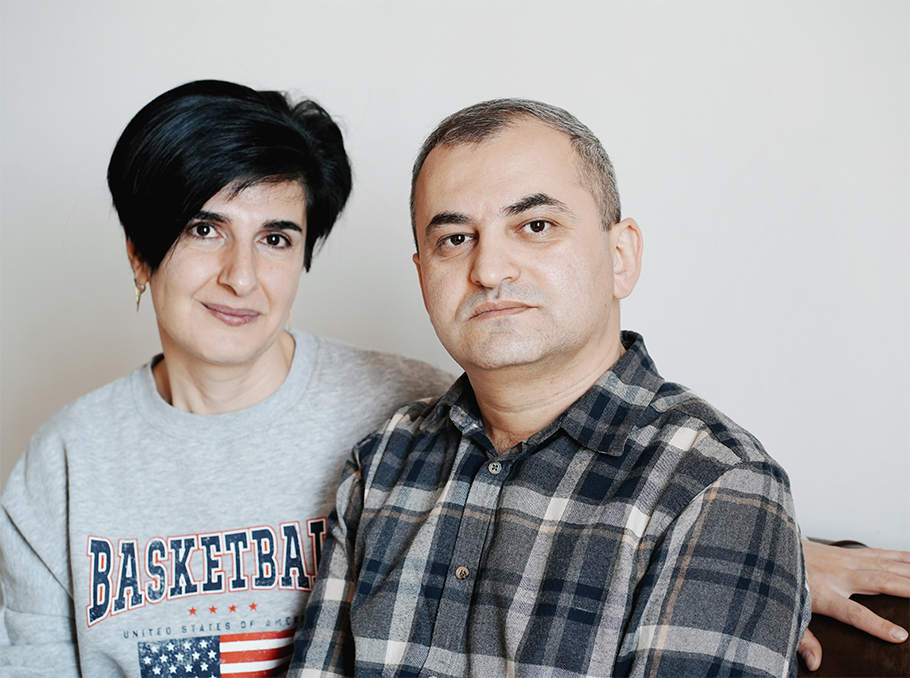
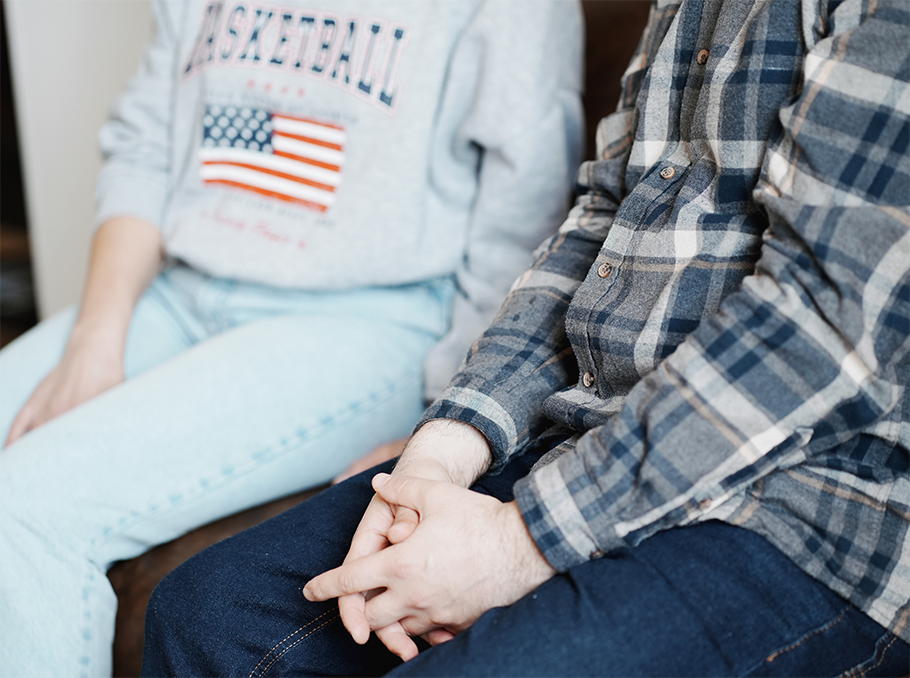
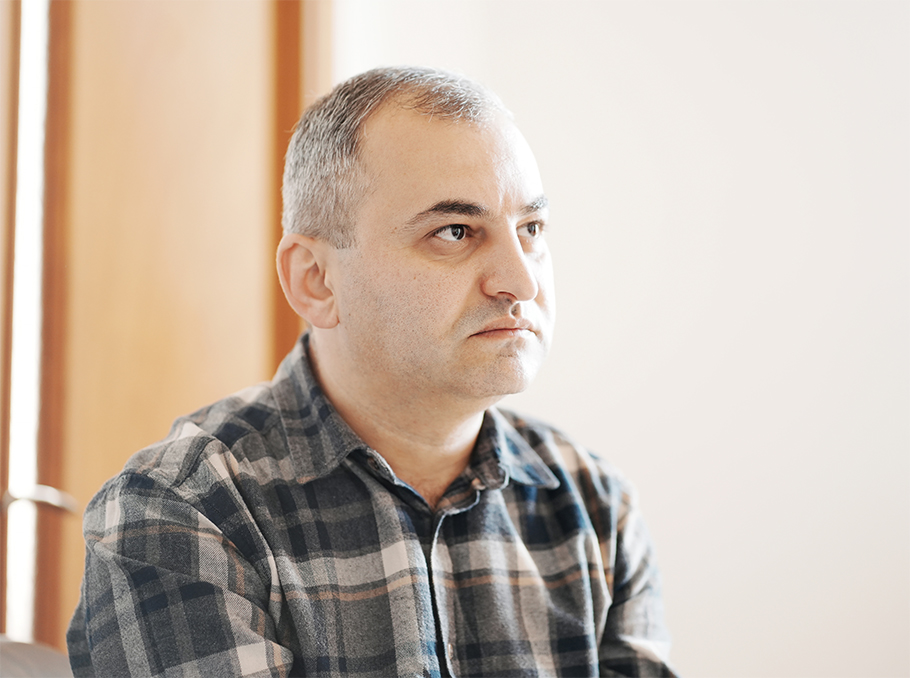
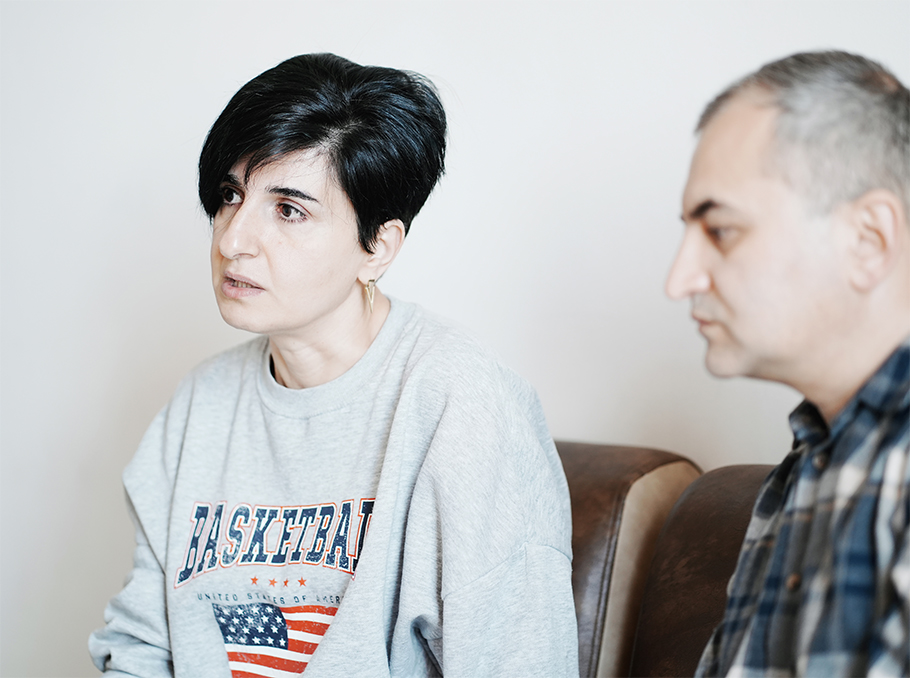






Comments
Dear visitors, You can place your opinion on the material using your Facebook account. Please, be polite and follow our simple rules: you are not allowed to make off - topic comments, place advertisements, use abusive and filthy language. The editorial staff reserves the right to moderate and delete comments in case of breach of the rules.